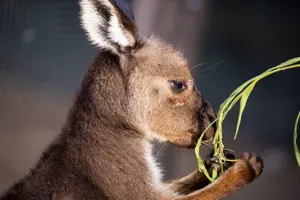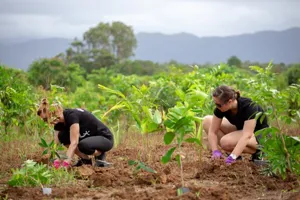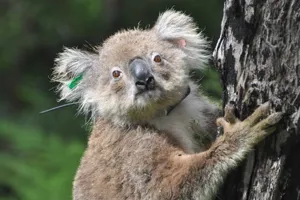Animal Care and Conservation

Animal Care
We take responsibility for the animals in our care and understand the role we must play in the conservation of endangered creatures and habitats around the world. We work to world-class welfare standards through our animal care network, and we support both Science for Wildlife and Rainforest Rescue in their missions to protect unique Australian animals and their habitats.

Project: Cassowary
Cassowaries are found in the stunning tropical rainforest of North-east Queensland. Unfortunately with increased land clearing in their rainforest habitat, cassowary numbers have declined significantly and there are now only an estimated 1500 birds remaining in the wild. This project supports Rainforest Rescue’s ‘Daintree Buy Back and Protect Forever’ programs based in the Daintree Rainforest which identifies, purchases, then protects high conservation value rainforest and replants previously cleared areas of rainforest to create more habitable areas for animals like the cassowary. We support this project through fundraising, education, advocacy and volunteer support at annual planting opportunities which help protect and restore vital cassowary habitat.

Project: Koala
Koalas are one of Australia’s most iconic and admired native animals. Sadly they are now also threatened with extinction. This project supports the koala research team at Western Sydney University, in collaboration with Science For Wildlife, working with koalas based within the Blue Mountains region. The project involves fitting koalas with radio collars. This important piece of equipment allows a team of researchers to track how far these koalas move, how often they encounter other koalas and, of particular interest, what these koalas eat. Researchers learn what koalas have eaten through a chemical analysis of their poo and leaves in a laboratory. We support this project through fundraising, education and advocacy which enables researchers to continue and expand their koala research and monitoring program.